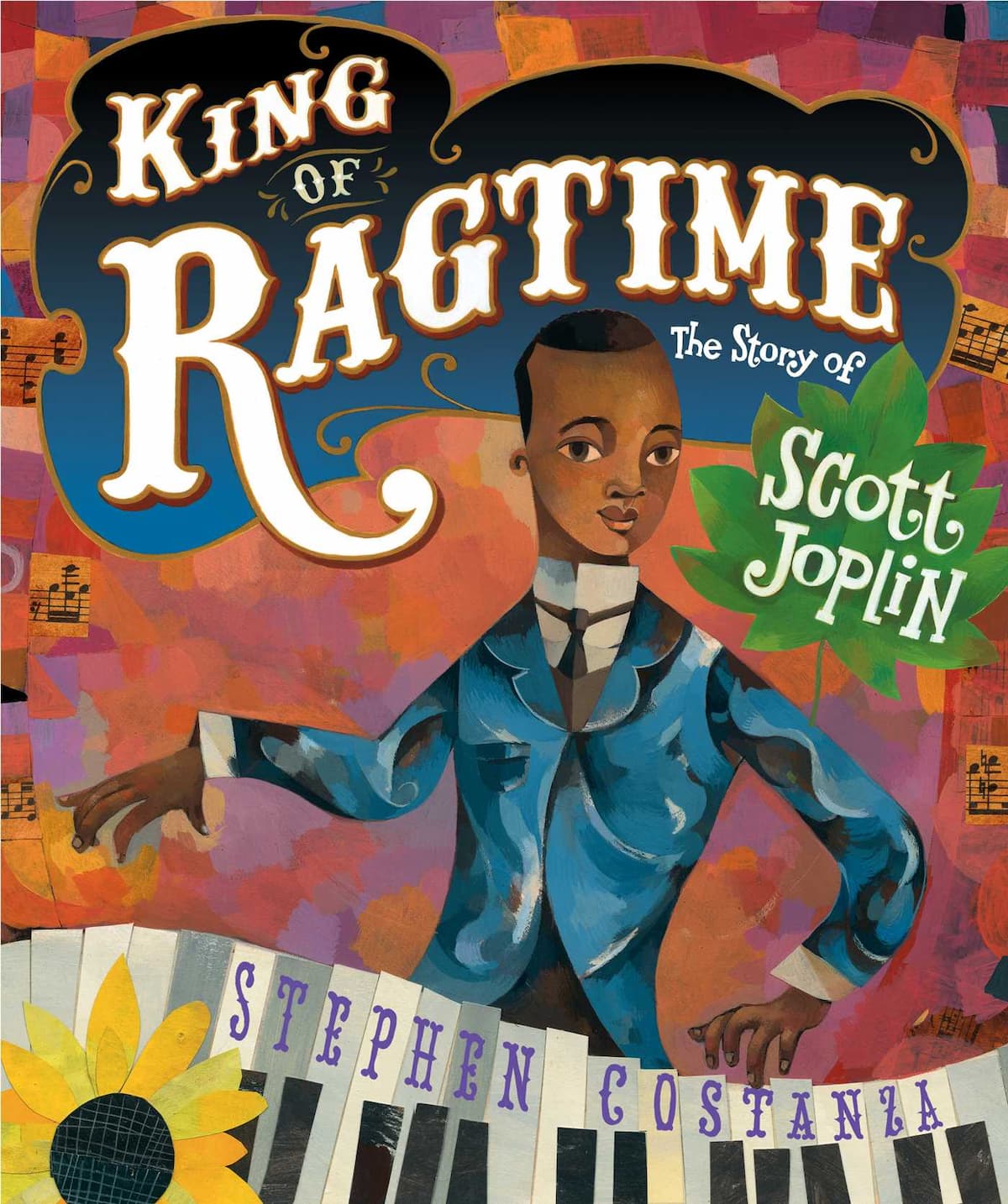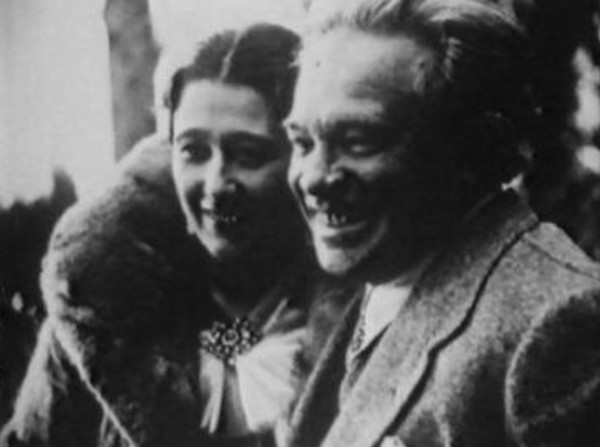I have listened to a lot of music by Sergei Prokofiev, and to my ears, four distinct elements are nearly always present. There seems to be a lyrical, classical, innovative, and a strong motoric or toccata element that shapes his music. Lucky for me, that’s exactly how Prokofiev describes his own music as well. The lyrical is angular and often melancholic, and it includes the grotesque, which Prokofiev describes as “scherzoishness, encompassing laughter and mockery.”
Sergei Prokofiev: Sarcasms, Op. 17, “Tempestoso”
Virility and Self-Assurance
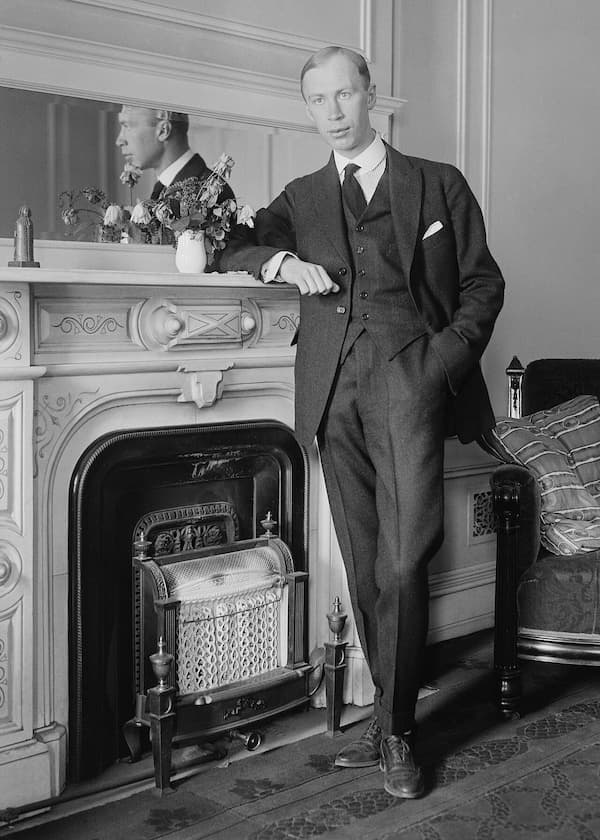
The “classical” elements are reflected in traditional patterns found in instrumental forms “of both early and later composers.” Through his “innovative” line, Prokofiev searches for diverse expression through harmonic structures, and the “motor/toccata element is manifested in his music by characteristic precision and speed.” And we need to add Prokofiev’s phenomenal piano technique to the mix. Heinrich Neuhaus described Prokofiev’s playing as full of “virility, self-assurance, unshakable will, iron rhythm and immense volume, which was often difficult to tolerate in a relatively small space.”
The small suite of five pieces called Sarcasms dates from between 1912 and 1914. Prokofiev’s originality reveals a seemingly grotesque style in which rough accents and jagged rhythms oppose lyrical themes. Clothed in simple forms, Prokofiev was looking for a new musical language by employing extremes in dynamics, clashing harmonies and aggressively using “wrong notes” to represent laughter in these miniatures.
Sergei Prokofiev: Sarcasms, Op. 17, “Allegro rubato” (Vladimir Feltsman, piano)
Music To Create Astonishment
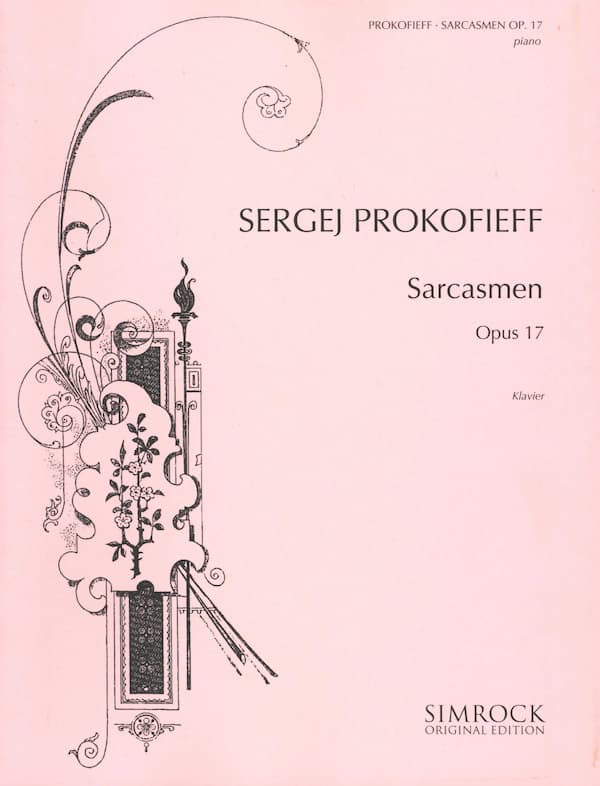
Sergei Prokofiev: Sarcasms
In the year before the official premiere, Prokofiev played the set at a private performance for Heinrich Neuhaus and friends. Neuhaus reports, “Prokofiev was invited to play. He went over to the piano at once, placed a sheet of music on the stand—it was the manuscript of Sarcasms he had just finished—and played a few chords…We all gathered around to look at the music.
My uncle, Felix Blumenfeld, who happened to be standing just behind him, put on his pince-nez and peered at the manuscript. Prokofiev was about to begin playing, but suddenly turned to him and said, “You had better move away, or I am afraid you may want to hit me over the head. Everybody laughed, and my uncle moved away. The effect of the music was astounding. Some people were delighted, others indignant. Clearly music which was meant to create astonishment!”
Sergei Prokofiev: Sarcasms, Op. 17, “Allegro precipitato”
Mocking Laughter
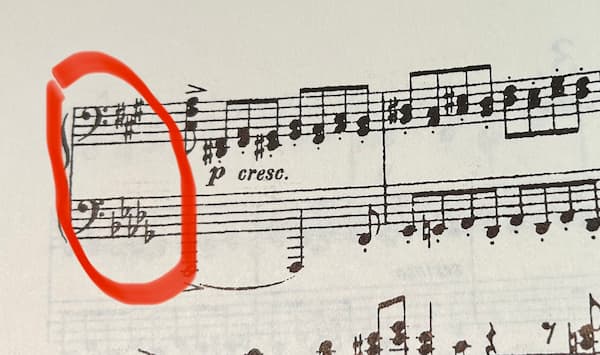
Conflicting key signatures in Sarcasms
Prokofiev did receive loud applause at the premiere of the set in Petersburg. However, he felt the pieces “had just been written and were little understood at the time.” To be sure, fellow composers Nikolai Medtner and Sergei Rachmaninoff voiced their serious concerns, with Prokofiev attempting to describe his thoughts behind the set.
“We often indulge in malicious laughter at someone or something, but when we pause to look, we see how pitiful and sad is the object of our ridicule, and then we grow ashamed, the mocking laughter rings in our ears, but it is we who are its object now.”
Sergei Prokofiev: Sarcasms, Op. 17, “Smanioso” (Oleg Marshev, piano)
The Grotesque Style
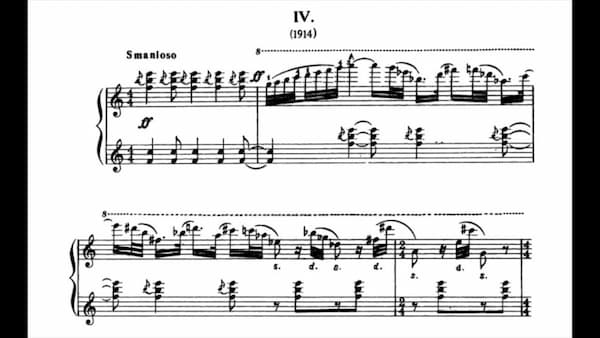
Prokofiev’s Sarcasms music score excerpt
Sarcasms, written a couple of years before Prokofiev left Russia, is considered the most extreme example of the composer’s grotesque style. The affinity with Scriabin was well noted at the time, yet his atmosphere tends to run more to the diabolical. The famed music critic Boris Asafiev heard “devils who are frightened by their own cold, spiteful, jeering tone, their own contempt for the spiritual.”
This short set rates amongst Prokofiev’s most experimental creations during his early creative phase. The young composer appears furious, always rebellious, and establishes himself as an artist of radical Modernism. Expressing primitive emotions without resorting to traditional romantic means, this abrasive work attempts to communicate directly and profoundly with his audience without being concerned about alienating his listeners. However, within this pounding rebelliousness, Prokofiev also reveals his deeply human side as lyrical contrasts unexpectedly find their way into these exhilarating pieces.
For more of the best in classical music, sign up for our E-Newsletter
Sergei Prokofiev: Sarcasms, Op. 17 “Precipitosissimo” (Staffan Scheja, piano)


